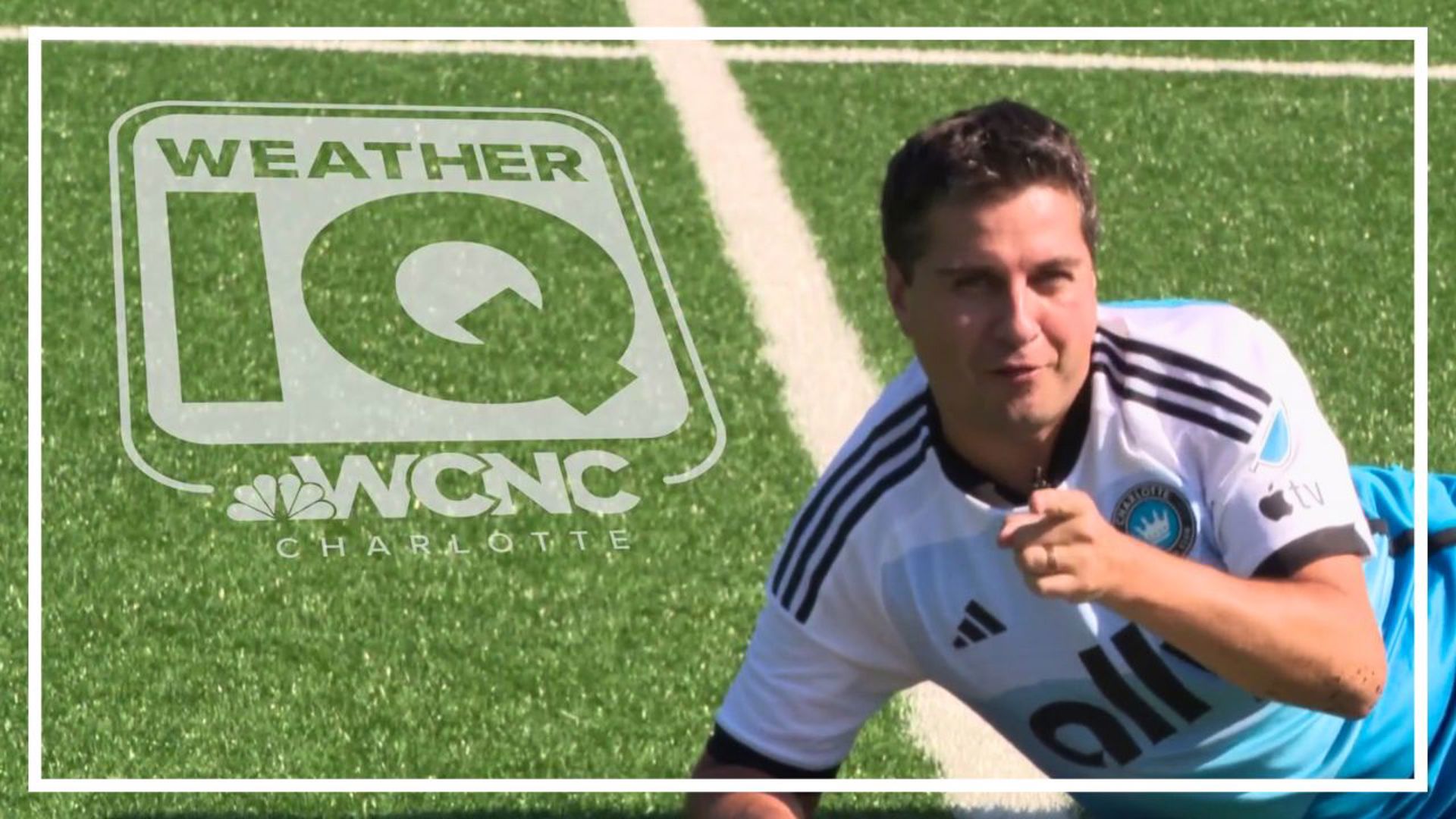CHARLOTTE, N.C. — Whether you are an amateur soccer player actually good at soccer. Weather affects the game.
We teamed up with Charlotte FC who opened up their practice facilities to us to help raise that Weather IQ.
Temperature
When it is a cold day on the pitch, your muscles aren’t as pliable. If you don’t stretch appropriately, you risk injury.
When it is hot, your muscles may be looser but your endurance is lower. Your heart beats faster and it takes longer to recover than in the cold. So when it’s hot, players sprint less and there are typically more passes.
The temperature not only affects you but also the ball. Soccer balls are filled with air that contracts and expands with temperature change. The pressure of the ball changes by 1 PSI for every 10 degrees Fahrenheit.
The warmer it is the more the air expands within the ball. This allows more force when the ball is kicked and more bounce when it lands. When it is cold, kicks will go shorter. Also when the ball is in the air, warmer air has less drag since it is less dense. This allows for more big kicks in the game.
Altitude
At higher altitudes, the air is thinner. That means less oxygen making it harder to breathe.
To train for this, Charlotte FC has an altitude room. Training in this specialized atmosphere increases endurance for when players travel to matches played at much higher altitudes.
For what challenges thinner air poses for players, this air is actually good for the ball. With less resistance, the ball will travel farther.
Wind
Obviously, if the winds are stronger, it will affect the flight of the ball. A long kick that normally challenges the net, could be blown way off target. This can change a team's strategy. During windy games, teams could shift to a short ball strategy. This means they focus more on short passes instead of long passes.
And notwithstanding, wind can be terrible for corner kicks.
Rain and sun
Heavy rain affects the pitch. A bad pitch causes them to slip and be off target. This can make a good player look bad.
When the pitch is just wet and not a muddy mess, it actually makes passes on the ground move faster. Whereas the ball skidding across the wet ground makes it harder for the goal keeper to stop.
The sun can make it tough to see a ball high in the air. It can also change the pitch. A wet ground to start the game could be dry by the second half. This means that passes won’t make it as far and you need to make adjustments to your game strategy.
Come raise your Weather IQ on other sports
WCNC Charlotte’s Weather IQ YouTube channel gives detailed explainers from the WCNC Weather Impact Team meteorologists to help you learn and understand weather, climate and science. Watch previous stories where you can raise your Weather IQ.

